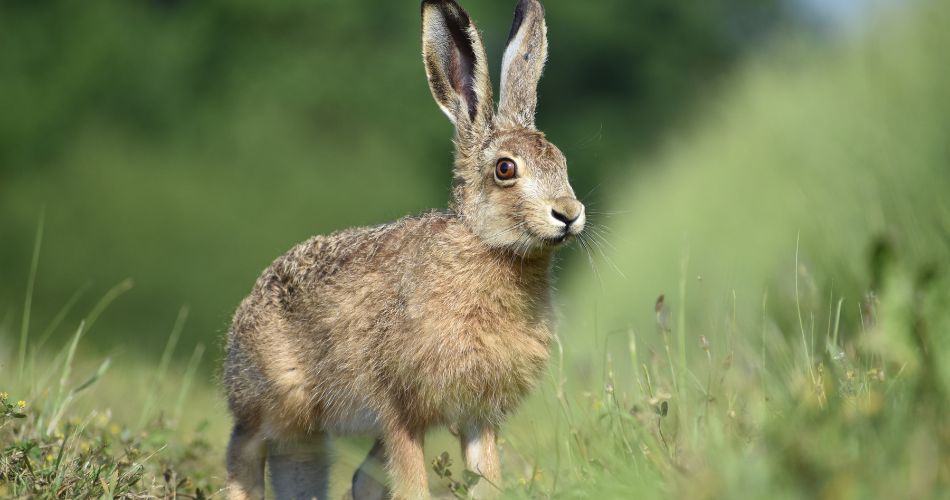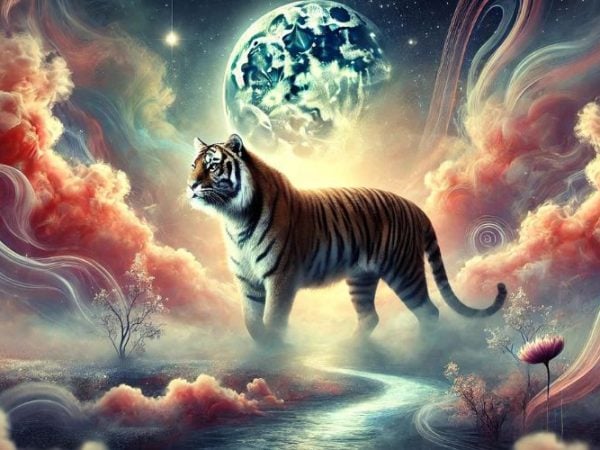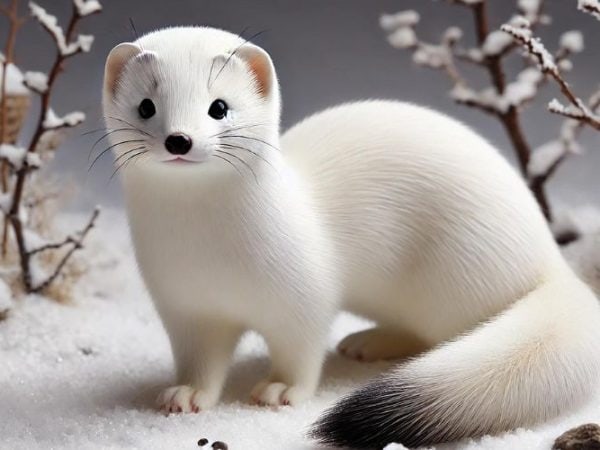Briefly
The Hare is an intricate symbol used in various cultures, embodying traits such as speed, agility, and fertility. It is often considered an emblem of the moon due to its nocturnal habits and rapid reproductive cycle, mirroring the lunar cycle. The Hare is also associated with transformation and rebirth due to its connection with spring and the renewal of life. Its elusive nature often equates it with cunning and intuition.
- Symbolism: Speed, Agility, Fertility, Lunar Connection, Transformation, Rebirth, Cunning, Intuition
Hare in Dreams
From a psychological perspective, dreaming of a hare represents agility, swift decision-making, and the capability to act swiftly upon opportunities. It may also indicate a need for self-reliance and independence. In the context of dream interpretation, a hare can symbolize fertility and abundance due to its prolific reproductive nature. If you’re being chased by a hare, it could reflect feelings of being pursued or pressured in waking life.
- Symbolism: Agility, Swift Decision-making, Opportunism, Self-reliance, Independence, Fertility, Abundance, Pressure, Pursuit
See also our Free Dream Interpretation Tool
Hare in Myths and Folklore
In various mythologies, the hare is a revered creature. For instance, in Celtic mythology, the hare is seen as a magical creature with ties to the moon, cycles, and fertility. In Native American folklore, the hare, known as ‘Manabozho’ or ‘Great Hare’, is a trickster god, embodying wit and wisdom. In Asian folklore, particularly in Japan and China, the hare is associated with the moon and is often depicted pounding rice cakes, symbolizing longevity and prosperity.
The hare also plays a significant role in African folklore, where it is commonly portrayed as a trickster. For instance, in the tales of the Akan people of West Africa, the hare, known as Ananse, often outsmarts other animals with its cunning and wit. Furthermore, the hare is a symbol of rebirth and resurrection in many Easter traditions across the globe, aligning with its association with spring and renewal.
- Symbolism: Magic, Lunar Connection, Cycles, Fertility, Wit, Wisdom, Longevity, Prosperity, Trickster, Rebirth, Resurrection
Hare Spiritual Meanings
In the spiritual realm, the hare is considered a totem of intuition, sensitivity, and awareness of one’s surroundings. It encourages the cultivation of balance between vulnerability and self-defense. The hare, with its keen senses, symbolizes the use of intuition and instinct to discern and adapt to changes in environment and situations. It also stands for fertility and abundance, promoting growth and new beginnings.
- Symbolism: Intuition, Sensitivity, Awareness, Balance, Self-defense, Instinct, Adaptability, Fertility, Abundance, Growth, New beginnings
Hare Tattoo Meaning
A hare tattoo can symbolize various traits and themes such as speed, vitality, fertility, and the ability to swiftly adapt to changing circumstances. It can also signify rebirth and resurrection, aligning with the hare’s association with spring and the cycle of life. A hare tattoo might be chosen by individuals who identify with its symbolism of agility, quick-thinking, and resourcefulness.
- Symbolism: Speed, Vitality, Fertility, Adaptability, Rebirth, Resurrection, Agility, Quick-thinking, Resourcefulness
FAQs
What does a hare symbolize in dreams?
In dreams, a hare can represent quick decision-making, seizing opportunities, and independence. It can also signify fertility and abundance due to its prolific nature.
What is the spiritual meaning of a hare?
Spiritually, the hare stands for intuition, sensitivity, and awareness. It encourages balance between vulnerability and self-defense, symbolizing the use of instinct to adapt to changes.
What does a hare tattoo represent?
A hare tattoo can symbolize speed, vitality, and fertility. It can also represent rebirth and resurrection, reflecting the hare’s association with spring and the cycle of life.

Reviewed by Alexander Lys, M.L., a specialist in the field of symbolism research and dream psychology. A certified participant in numerous psychological seminars and courses, the author of hundreds of articles on psychology, including studies on symbolism in dreams and myths from a scientific perspective.



